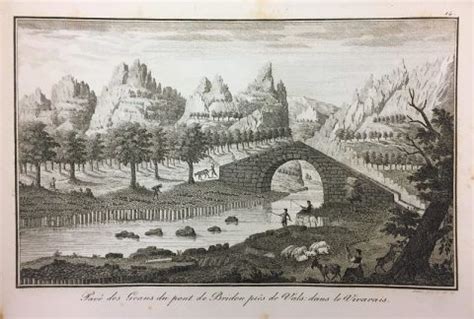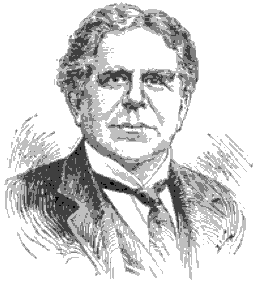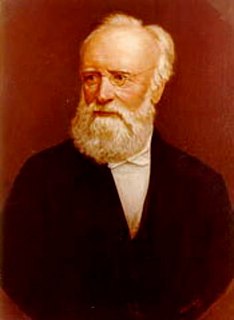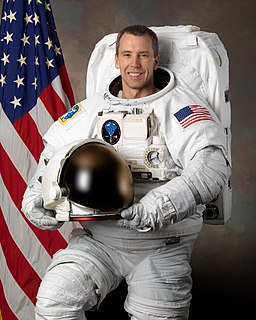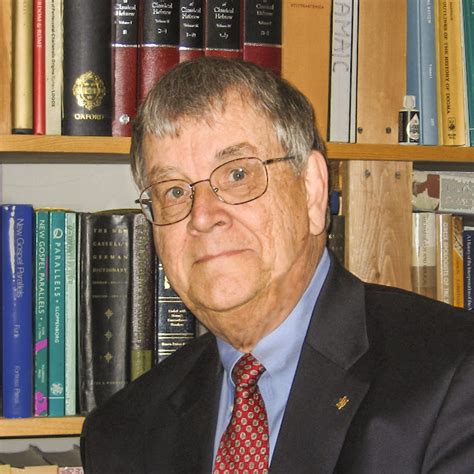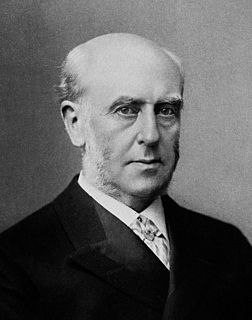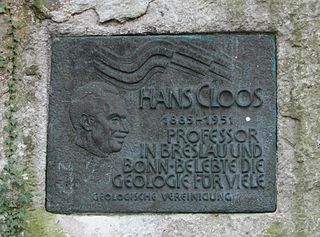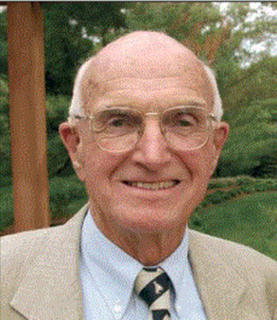Top 127 Geology Quotes & Sayings - Page 2
Explore popular Geology quotes.
Last updated on December 22, 2024.
Satellites record data in different parts of the light spectrum that we can't see. And it's that information that allows satellites to be so powerful in terms of looking at things like vegetation health, finding different kinds of geology that may indicate an oil deposit or some kind of mineralogical deposit that can be mined.
In geology we cannot dispense with conjectures: [but] because we are condemned to dream let us ensure that our dreams are like those of sane men-e.g. that they have their foundations in truth-and are not like the dreams of the sick, formed by strange combinations of phantasms, contrary to nature and therefore incredible.
[In geology,] As in history, the material in hand remains silent if no questions are asked. The nature of these questions depends on the "school" to which the geologist belongs and on the objectivity of his investigations. Hans Cloos called this way of interrogation "the dialogue with the earth," "das Gesprach mit der Erde."
Philosophers, if they have much imagination, are apt to let it loose as well as other people, and in such cases are sometimes led to mistake a fancy for a fact. Geologists, in particular, have very frequently amused themselves in this way, and it is not a little amusing to follow them in their fancies and their waking dreams. Geology, indeed, in this view, may be called a romantic science.
The existing and long-standing use of the word 'evolution' in our state's textbooks has not adversely affected Georgians' belief in the omnipotence of God as creator of the universe, There can be no incompatibility between Christian faith and proven facts concerning geology, biology, and astronomy. There is no need to teach that stars can fall out of the sky and land on a flat Earth in order to defend our religious faith.
The human mind has a natural tendency to explore what has passed in distant ages in scenes with which it is familiar: hence the taste for National and Local Antiquities. Geology gratifies a larger taste of this kind; it inquires into what may appropriately be termed the Antiquities of the Globe itself, and collects and deciphers what may be considered as the monuments and medals of its remoter eras.
The Bible is the Only Book That Can Make Us Wise unto Salvation. The Bible is not a book to be studied as we study geology and astronomy, merely to find out about the earth's formation and the structure of the universe; but it is a book revealing truth, designed to bring us into living union with God.
We know from astronomy that the universe had a beginning, from physics that the future is both open and unpredictable, from geology and paleontology that the whole of life has been a process of change and transformation. From biology we know that our tissues are not impenetrable reservoirs of vital magic, but a stunning matrix of complex wonders, ultimately explicable in terms of biochemistry and molecular biology. With such knowledge we can see, perhaps for the first time, why a Creator would have allowed our species to be fashioned by the process of evolution.
I've always loved empty stadiums, none more than this one. It feels alive when it's packed and now it looks like it's resting, waiting for next week. This building has seen a lot of things. Billy Cannon's punt return, a crowd so loud it registered on the Richter Scale up the street at the geology department. It's as if all that history leaves Tiger Stadium tired and so it needs to recharge until it's time to wake and do it again.
Pressure, no doubt, has always been a most important factor in the metamorphism of rocks; but there is, I think, at present some danger in over-estimating this, and representing a partial statement of truth as the whole truth. Geology, like many human beings, suffered from convulsions in its infancy; now, in its later years, I apprehend an attack of pressure on the brain.
With respect to those points, on which the declaration of Scripture is positive and decisive, as, for instance, in asserting the low antiquity of the human race; the evidence of all facts that have yet been established in Geology coincides with the records of Sacred History and Profane Tradition to confirm the conclusion that the existence of mankind can on no account be supposed to have taken its beginning before that time which is assigned to it in the Mosaic writings.
A garden is the place millions of people go to touch the earth, to smell flowers - to use some of that fabled human brain power in the cause of better participating with natural processes in the place they call home. It serves as an art project, an organic produce market, a spiritual practice, a pharmacy. It offers ongoing lessons in ecology, biology, chemistry, geology, meteorology. Gardening imparts an organic perspective on the passage of time. It bestows on its practitioners a genuine sense of admiration for the plants, the soil, the sun, the water.
One of the grandest figures that ever frequented Eastern Yorkshire was William Smith, the distinguished Father of English Geology. My boyish reminiscence of the old engineer, as he sketched a triangle on the flags of our yard, and taught me how to measure it, is very vivid. The drab knee-breeches and grey worsted stockings, the deep waistcoat, with its pockets well furnished with snuff-of which ample quantities continually disappeared within the finely chiselled nostril-and the dark coat with its rounded outline and somewhat quakerish cut, are all clearly present to my memory.
There is a relative order to the fossilized species of plants found in the geologic record for which Flood Geology cannot account, unless you can imagine apple and orange trees with Nike sneakers on their roots, racing past the magnolias and primitive mammals, leaving the ginkgoes back there with the dinosaurs when the Flood waters began to rise.
[The] first postulate of the Principle of Uniformity, namely, that the laws of nature are invariant with time, is not peculiar to that principle or to geology, but is a common denominator of all science. In fact, instead of being an assumption or an ad hoc hypothesis, it is simply a succinct summation of the totality of all experimental and observational evidence.
The sea erupted. Often the sea and land changed places. The immobility of contours of continents and seas, a dogma in geology, has no basis in fact. And immediately there is the problem of the climate. There were ancient climates that were very different from what they are today. If those corals grew where they were found, certainly the Earth was not travelling with the same elements of rotation and revolution which means not in the same orbit, not with the axis directed in the same position as it is today. If you don't believe it, try to conservate corals on the North Pole.
Geology is rapidly taking its place as an introduction to the higher history of man. If the author has sought to exalt a favorite science, it has been with the desire that man-in whom geological history had its consummation, the prophecies of the successive ages their fulfilment-might better comprehend his own nobility and the true purpose of his existence.
Geology is part of that remarkable dynamic process of the human mind which is generally called science and to which man is driven by an inquisitive urge. By noticing relationships in the results of his observations, he attempts to order and to explain the infinite variety of phenomena that at first sight may appear to be chaotic.
But just in proportion as this process of extermination has acted on an enormous scale, so must the number of intermediate varieties, which have formerly existed, be truly enormous. Why then is not every geological formation and every stratum full of such intermediate links? Geology assuredly does not reveal any such finely graduated organic chain; and this, perhaps, is the most obvious and serious objection which can be urged against the theory. The explanation lies, as I believe, in the extreme imperfection of the geological record.
The course of the line we indicated as forming our grandest terrestrial fold [along the shores of Japan] returns upon itself. It is an endless fold, an endless band, the common possession of two sciences. It is geological in origin, geographical in effect. It is the wedding ring of geology and geography, uniting them at once and for ever in indissoluble union.
Philosophy, astronomy, and politics were marked at zero, I remember. Botany variable, geology profound as regards the mud stains from any region within fifty miles of town, chemistry eccentric, anatomy unsystematic, sensational literature and crime records unique, violin player, boxer, swordsman, lawyer, and self-poisoner by cocaine and tobacco.
Geology does better in reclothing dry bones and revealing lost creations, than in tracing veins of lead and beds of iron; astronomy better in opening to us the houses of heaven than in teaching navigation; surgery better in investigating organiation than in setting limbs; only it is ordained that, for our encouragement, every step we make in science adds something to its practical applicabilities.
Although I was four years at the University [of Wisconsin], I did not take the regular course of studies, but instead picked out what I thought would be most useful to me, particularly chemistry, which opened a new world, mathematics and physics, a little Greek and Latin, botany and and geology. I was far from satisfied with what I had learned, and should have stayed longer.
Each of the major sciences has contributed an essential ingredient in our long retreat from an initial belief in our own cosmic importance. Astronomy defined our home as a small planet tucked away in one corner of an average galaxy among millions; biology took away our status as paragons created in the image of God; geology gave us the immensity of time and taught us how little of it our own species has occupied.
Civilization just takes it as a given that the whole world was flooding. Then science came and you had geology and modern astrophysics, and time became well understood going back billions of years. So enlightened religious people, as a necessity, had to shed the magical elements of the Bible. A little known fact is that Thomas Jefferson did just that. There's something called the Jefferson Bible. It's not widely publicized because it sort of conflicts with certain people's ideas of what the founding fathers were.
Combining in our survey then, the whole range of deposits from the most recent to the most ancient group, how striking a succession do they present:- so various yet so uniform-so vast yet so connected. In thus tracing back to the most remote periods in the physical history of our continents, one system of operations, as the means by which many complex formations have been successively produced, the mind becomes impressed with the singleness of nature's laws; and in this respect, at least, geology is hardly inferior in simplicity to astronomy.
On the first page of the Bible there is an instance of how literalism is but an invitation to transcend the image to which literalism points. That first page is not geology, biology or paleontology; it is high religion. For there we are told who we are in terms of our constititutive text. And if we could understand that, we would worrying about whether the antelopes or the cantaloupes came in a certain order.
[Vestiges begins] from principles which are at variance with all sober inductive truth. The sober facts of geology shuffled, so as to play a rogue's game; phrenology (that sinkhole of human folly and prating coxcombry); spontaneous generation; transmutation of species; and I know not what; all to be swallowed, without tasting and trying, like so much horse-physic!! Gross credulity and rank infidelity joined in unlawful marriage, and breeding a deformed progeny of unnatural conclusions!
Geology, perhaps more than any other department of natural philosophy, is a science of contemplation. It requires no experience or complicated apparatus, no minute processes upon the unknown processes of matter. It demands only an enquiring mind and senses alive to the facts almost everywhere presented in nature. And as it may be acquired without much difficulty, so it may be improved without much painful exertion.
If there be one attribute of the Deity which astonishes me more than another, it is the attribute of patience. The Great Soul that sits on the throne of the universe is not, never was, and never will be, in a hurry. In the realm of nature, every thing has been wrought out in the august consciousness of infinite leisure; and I bless God for that geology which gives me a key to the patience in which the creative process was effected.
Experiments in geology are far more difficult than in physics and chemistry because of the greater size of the objects, commonly outside our laboratories, up to the earth itself, and also because of the fact that the geologic time scale exceeds the human time scale by a million and more times. This difference in time allows only direct observations of the actual geologic processes, the mind having to imagine what could possibly have happened in the past.
There are a whole other range of sciences that must deal with the narrative reconstruction of the inordinately complex events of history that can occur but once in their detailed glory. And for those kinds of sciences, be it cosmology, or evolutionary biology, or geology, or palaeontology, the experimental methods, simplification, quantification, prediction and repetition of the experimental sciences don't always work. You have to go with the narrative, the descriptive methods of what? Of historians.

